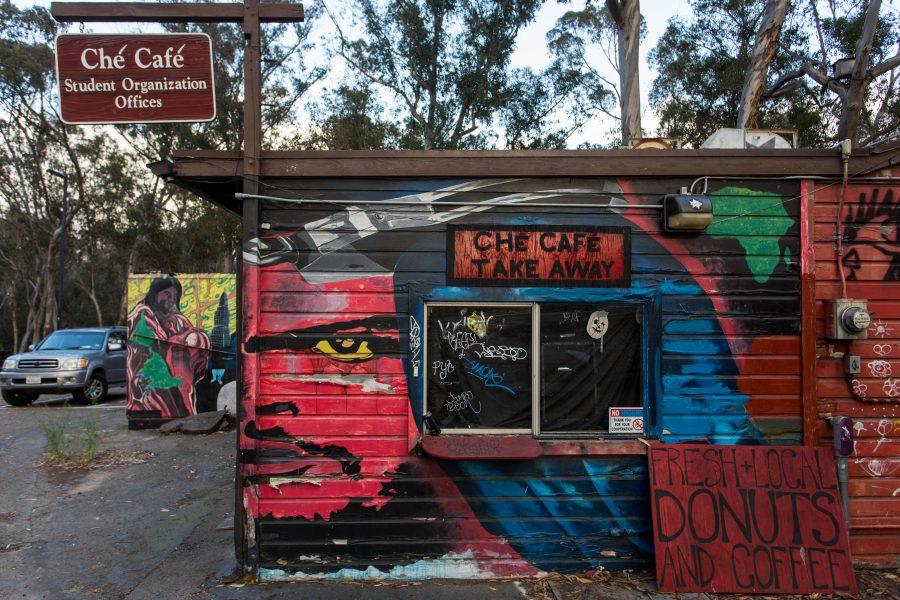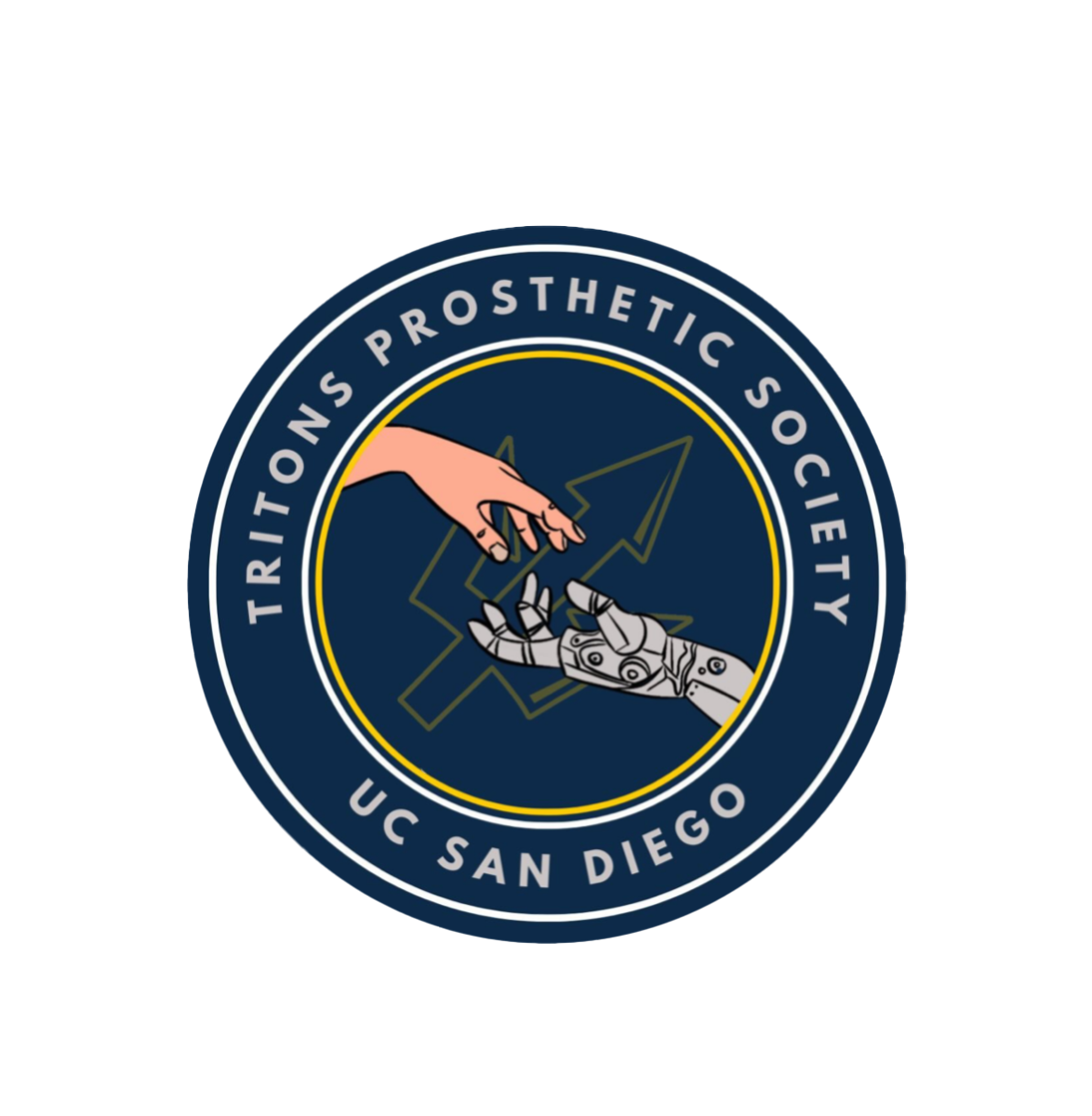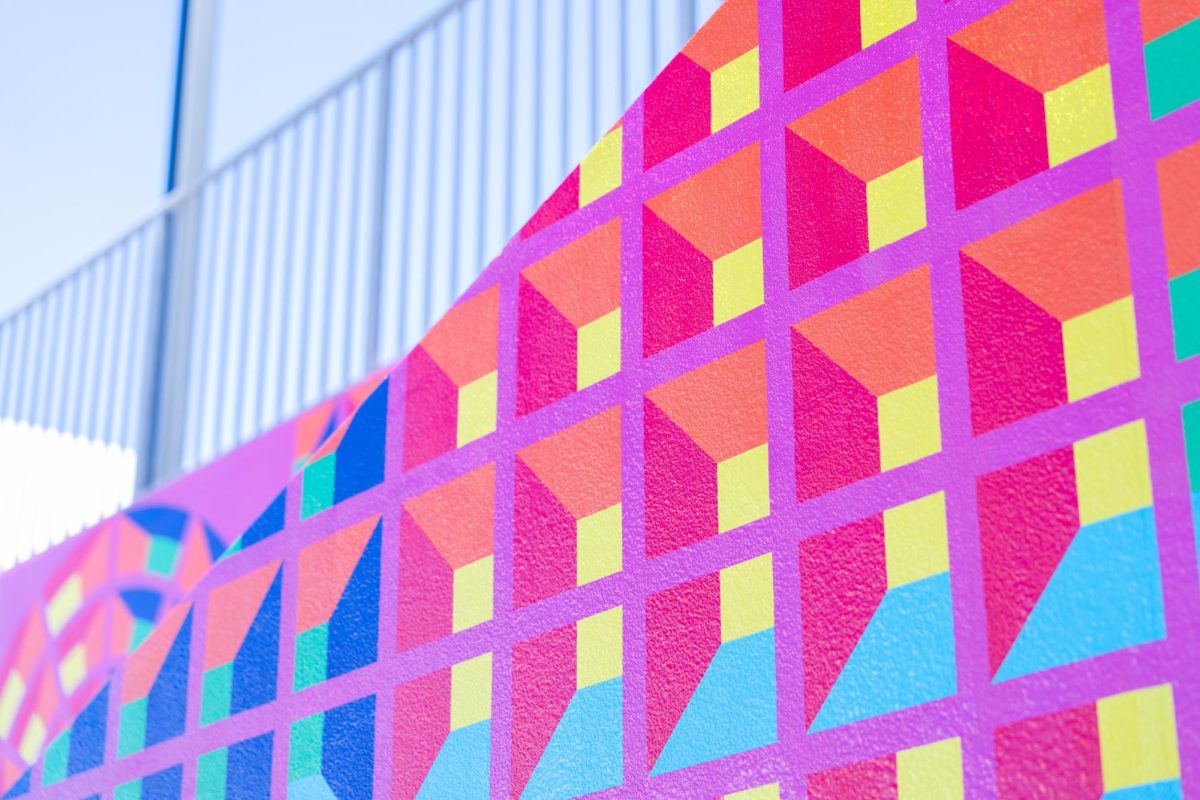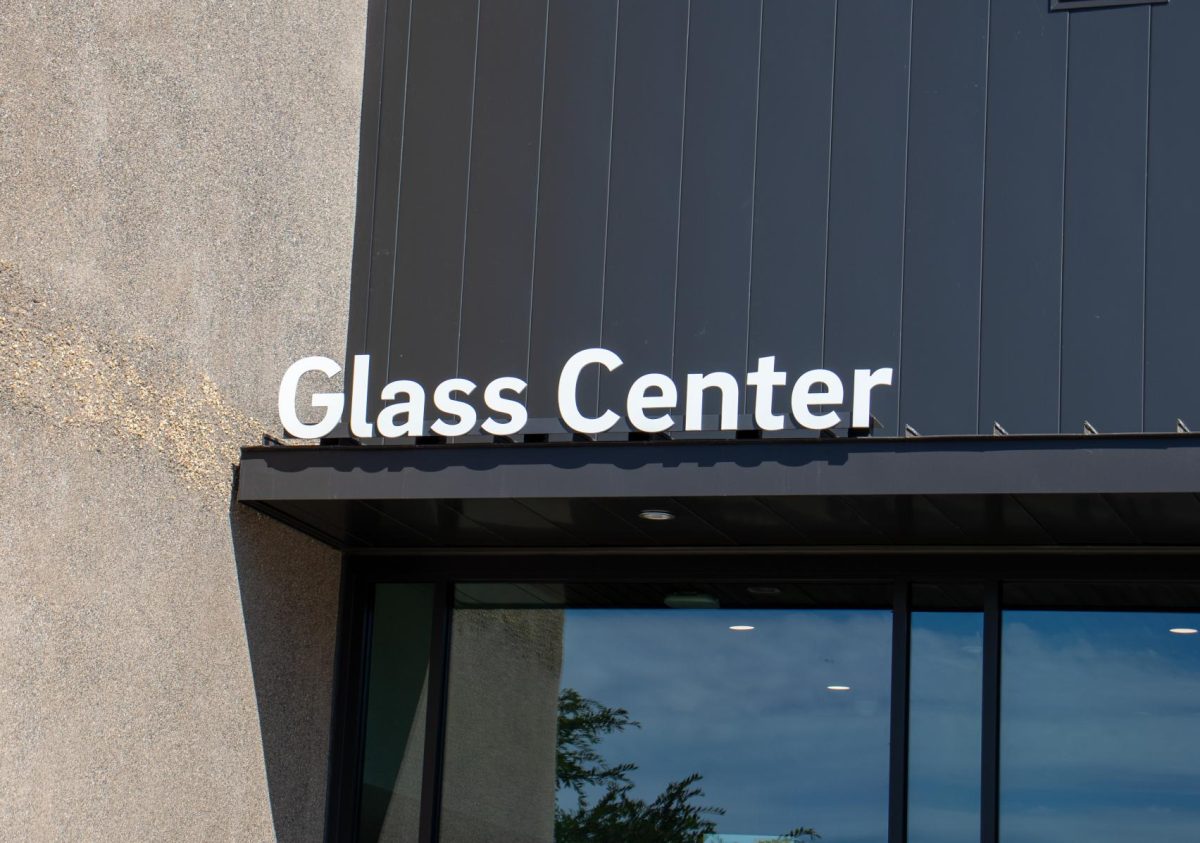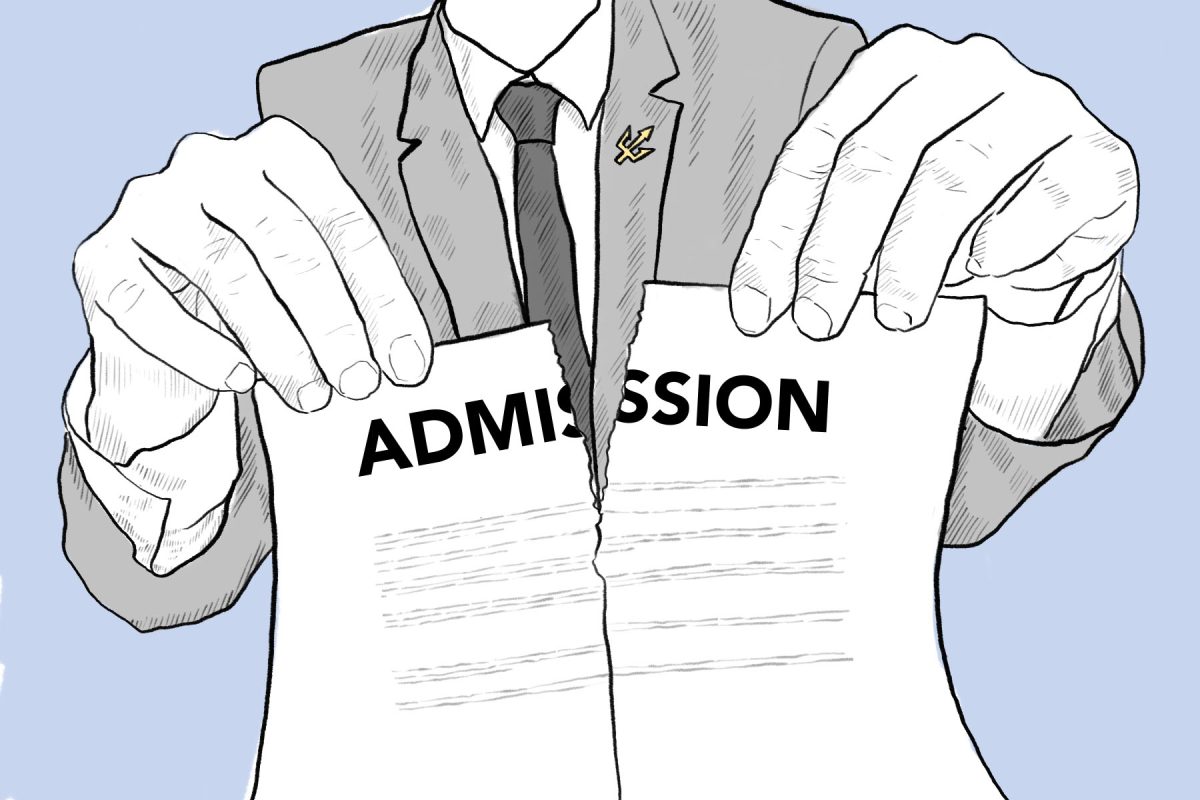
The C.H.E. Cafe Collective has survived in spite of a three year struggle with potential closure. The Guardian takes a look at the institution’s colorful 50 year history and what lies in its future.
On the outskirts of campus, between the theater district and Revelle College, lies a small yet elaborately painted building. With artistic and colorful murals, including the portrait of the Marxist icon, Che Guevara on its wooden walls, the building almost feels misplaced, and it sticks out among the modern, concrete architecture found throughout our campus. But this is, and has always been, the point of the C.H.E. Cafe, which is an enduring fixture on campus. The name of the Cafe itself is not only an homage to the Argentine revolutionary, but a backronym for “Cheap Healthy Eats.” It may be small and eccentric, but its political and artistic presence and mere existence over the last 50 years is symbolic of the spirit of inherent tensions between students and administrators.
Jaye MacAskill, president of the Save Our Heritage Organization, listed the Cafe on the 2015 Most Endangered List of Historical Resources and is currently working with the C.H.E. Cafe Collective to get historical designation for the facility. She spoke with the UCSD Guardian about the Cafe’s long history of activism.
“It’s being nominated for its cultural significance,” MacAskill told the Guardian. “It was a bastion on campus for free thought and inclusion on campus.”
The C.H.E. Cafe’s history dates back to May 6, 1966, when the Revelle Times came out with an article titled “Coffee House Donated.” It cited the relocation of three wooden buildings to the south of Revelle College. Chancellor Galbraith used $10,000 in registration fees to pay for the foundation of the building. It was designed by university architects and built by student volunteers. By the beginning of the following year, the coffee house opened and was shortly after named the “Coffee Hut.” It was intended as the original student union. On Feb. 13, 1970, a Triton Times advertisement read “Associated Students Presents at the Coffee Hut: ‘Groovy X-rated Trash Flicks’ + $0.15 hot dogs.”
Meanwhile, in the 1960s, the Lumumba-Zapata movement was born. Named for two South American revolutionaries, the movement riled up conservative San Diegans. It called for a new college, in addition to the current Third College, focused on recruiting black and Hispanic students. The activists also demanded new lines of study, including colonialism, ethnic studies and technology. In 1969, Chancellor McGill dubbed the demands of Lumumba-Zapata movement an “outrageous document written in the cliche ridden style favored by the Marxian ideologists of the New Left.”
Unfortunately, by May 1979, the Coffee Hut had accumulated $53,000 in debt and was shut down. Chancellor McElroy supported turning the Coffee Hut into a Faculty Club but was stopped after student protests. The Coffee Hut was subsequently turned over to A.S. management, which passed it onto the Student Center Board. In November of that year, the Board decided to move the UCSD Guardian into the vacant buildings in order to make room for the new General Store. Another co-op still standing strong today.
That same year, a vegetarian chain restaurant called “Fantastic Foods,” located in what is now Porter’s Pub, went out of business. The Student Center Board gave A.S. a thousand dollars to fix up the kitchen in the Coffee Hut and start a student-run vegetarian eatery. This new “Coffee Hut Kitchen with Veg Restaurant,” as the Daily Guardian wrote on Jan. 9, 1980, soon came to be known as the C.H.E. Cafe. In 1989, the Guardian moved back to the Old Student Center, following the opening of Price Center.
“It was created as an autonomous space for students there was always tension or often tension between the students and the administration over the site,” MacAskill said. “The school and I think the greater San Diego community felt there was a lot of ‘dangerous’ ideologies being spread there, sort of communist types of socialist ideas And then it took on a complete identity and became the C.H.E. Cafe.”
Throughout the 1980s, members of the co-op hosted punk and reggae concerts at the Cafe, openly expressing their counterculture tendencies. The Cafe tackled issues that are still divisive today and became the first “Safe Space” by hosting “Non-Sexist” LGBTQ socials. By the 1990s, the Cafe had been widely recognized as a hub for the hardcore punk, post punk and indie rock scenes. The U-shaped mural covered building also harbored budding activists of the Civil Rights movements, the Anti-Vietnam War Movement, the student Co-Op Movement, gender equality, environmentalism, vegetarianism and countless others.
An attempt to close the C.H.E. Cafe was made in the spring of 2000. The UCSD administration changed the locks without members’ consent, resulting in a lock-in by members and supporters. The university then demanded that the Cafe hire security guards for every show but was unsuccessful. It was ruled that the university did not have such authority under the 1993 Memorandum of Understanding between the co-ops and the university.
Controversy struck the C.H.E. again when the Cafe chose to sponsor a web project by the BURN! Collective, a directory which linked to a variety of radical websites and mailing lists. Among the groups included was the Revolutionary Armed Forces of Colombia (FARC), which the U.S. State Department classified as a terrorist organization. UCSD administration accused members of the Che Cafe of violating the USA Patriot Act by supporting FARC, an accusation that was eventually dismissed because the BURN! project only linked to the group’s website rather than hosting it.
The past three years have found the Cafe in constant danger of shutdown. On May 7, 2014, UCAB announced that the Cafe would close for a year to undergo renovations necessary to meet the fire marshall’s safety requirements, estimating that the repairs would cost a total of 1.5 million dollars. UCAB later removed the funds for these renovations from its budget on May 23, prompting controversy that the Collective would not be able to operate out of the building due to safety concerns. Furthermore, student support for the Cafe appeared weak; a survey by University Centers showed that 83 percent of responders “never attended shows when they visit Price Center or University Center,” while 39 percent considered operating the Cafe as a “very low priority.”
The Graduate Student Association voted to Decertify the C.H.E. Cafe Collective on May 29, 2014, terminating the Master Space Agreement that had been established in 2006 and stripping the Collective of Co-op status. According to the GSA, the decertification was due to the C.H.E. Cafe’s failure to comply with the Master Space Agreement by failing to pay rent. GSA recommended that the Cafe temporarily relocate to the Student Center.
In spite of the disagreement with respect to safety regulations, the C.H.E. Cafe Collective continued to use the building during Fall 2014 and Winter 2015. UCSD administration gave the C.H.E. Cafe an order to vacate the building by March 14, changed to March 17. The eviction notice sparked heated protests from the student body and, in defiance, supporters of the Cafe began an around-the-clock occupation of the building. The university was legally required to enforce the eviction within 180 days of March 17, an action which it never followed through with.
The occupation continued through the hottest months of summer. In July, Chancellor Khosla became involved in negotiations marking a significant turning point for the “Save the C.H.E.” movement. Finally, in September 2015, the two groups came to an agreement to continue lease negotiations and for the university to pay for a new sprinkler system, tempered glass windows and a better evacuation path.
“A loud and overwhelming message of ‘Save the C.H.E’ from current students, alumni and community members,’ came in various forms,” the C.H.E. Collective said in a statement to the UCSD Guardian. “It included a record-breaking 24/7 occupation of the threatened space lasting 120 days, artist and alumni boycotts of the university, marches [and] rallies.”
In response to student protests, A.S. Council and the GSA passed a resolution that demanded student inclusion on the fate of the facility and its history. According to GSA records, the C.H.E. Collective Campus Integration Committee is designed to “assist the C.H.E Collective with the interim reintegration period, defined as starting from the beginning of Fall 2015 and concluding at the end of Spring 2016.” The committee focused on developing data about student involvement and interest in the C.H.E Cafe while facilitating events and activism of the Collective. While negotiations continue, C4 will present the collected student metrics to A.S. Council, UCSD administration, and the GSA for each quarter.
Over the past year, the committee has focused on gathering data about student involvement and interest in the C.H.E. Cafe while facilitating events and the activism of the Collective. As negotiations continue, the Committee will continue to present the collected student metrics to A.S. Council, UCSD administration and the GSA for each quarter. The Committee report for Fall 2015 noted that “the C.H.E Collective has had a stronger community focus than student focus, with few students attending events and fewer actively participating in the collective. In the opinion of the committee, before additional money is spent on maintenance or renovation of the facility, the C.H.E Collective should demonstrate a willingness and ability to engage the student population of UCSD.”
In the following months the C.H.E Collective underwent a subtle schism, forming two parts: the Collective and the C.H.E Cafe Support network. Raquel Calderon, a senior Muir College student and core member of the collective, explained the duties of the two groups to the Guardian. According to Calderon the CCSN is mainly alumni who, as the name implies, support the collective at hearings, press events, and concerts. The Collective is formed of students and is the main force on campus representing the historic cafe.
“As far as I know, there’s isn’t really a strict definition as to what makes one a collective member and I think that’s because we try to maintain openness; our weekly meetings are open to the public,” Calderon said. “The CCSN has done a good amount to be supportive, showing up to our court hearings, speaking to the media about why they support the C.H.E. Cafe, and working on Historical Site Designation for the C.H.E… There are really two different ways to participate in supporting the C.H.E.”
Currently the C.H.E. Cafe and the other co-ops, whose leases expire in June, are negotiating with the administrator to renew these agreements. Andrea Carter, the current lawyer representing the Cafe, informed the Guardian that they are amicably working with administration to find a deal before the leases end for Groundwork Books, the General Store and the Food Co-Op. However, the Cafe remains without an agreement for the intervening time.
“The C.H.E. Cafe, even before negotiations began, asked for an interim agreement that would give them some security while negotiating and so far the University has been unresponsive,” Carter told the Guardian. “Despite this, we have great hope and optimism that we will finally emerge with a new and acceptable lease for all four co-ops. The university does seem very motivated to ink a deal by or before June.”
According to Calderon, once the new lease is approved, the Collective aims to continue physical improvements to the facility over the summer such as a rehaul of the kitchen and Life Safety repairs. As mediated negotiations between administrator, A.S. Council, GSA and the co-ops struggle on, Calderon emphasizes that the C.H.E. Cafe is a vital part of not only UCSD’s history but of UCSD’s future.
“If anything, I would hope that it would come to be understood that the C.H.E. Cafe provides value to students by being the volunteer-run, empowering space that it is and on that, councils would have faith that we are representing student interests,” Calderon said.
Additional Reporting by Noam Leead, Oliver Kelton and Tina Butoiu


